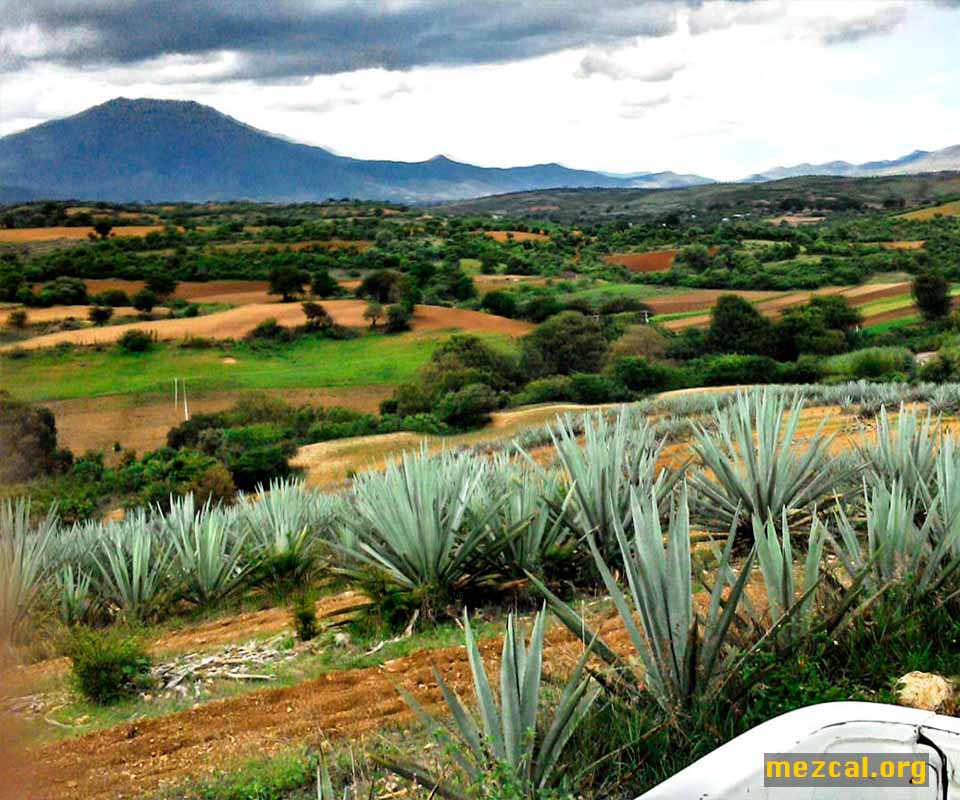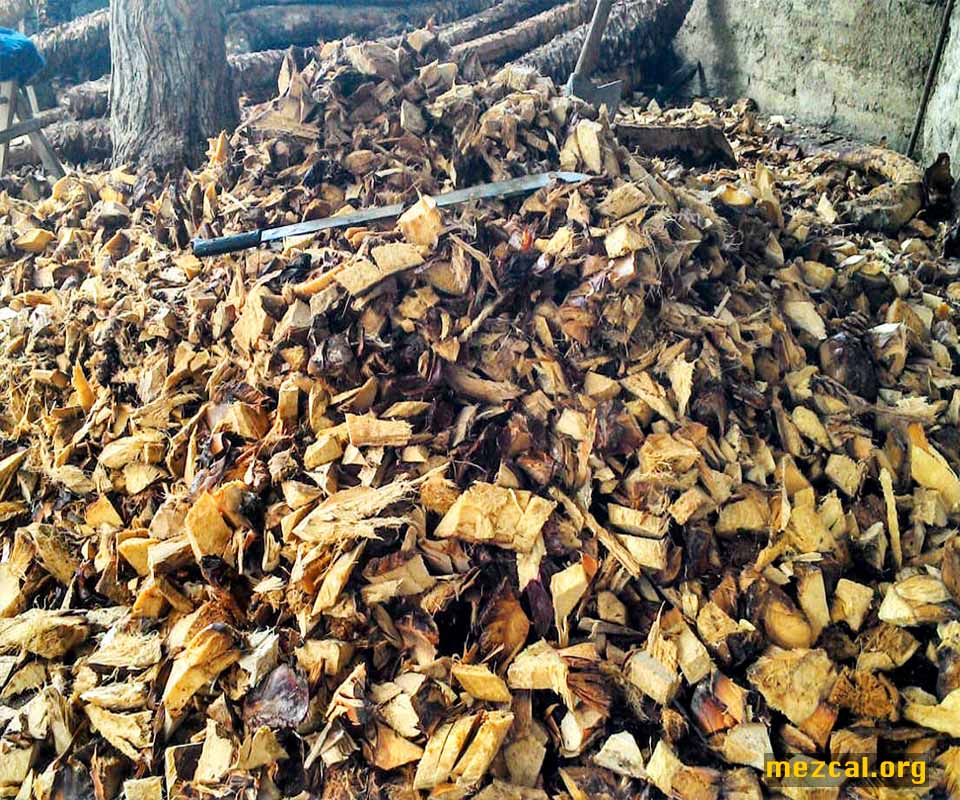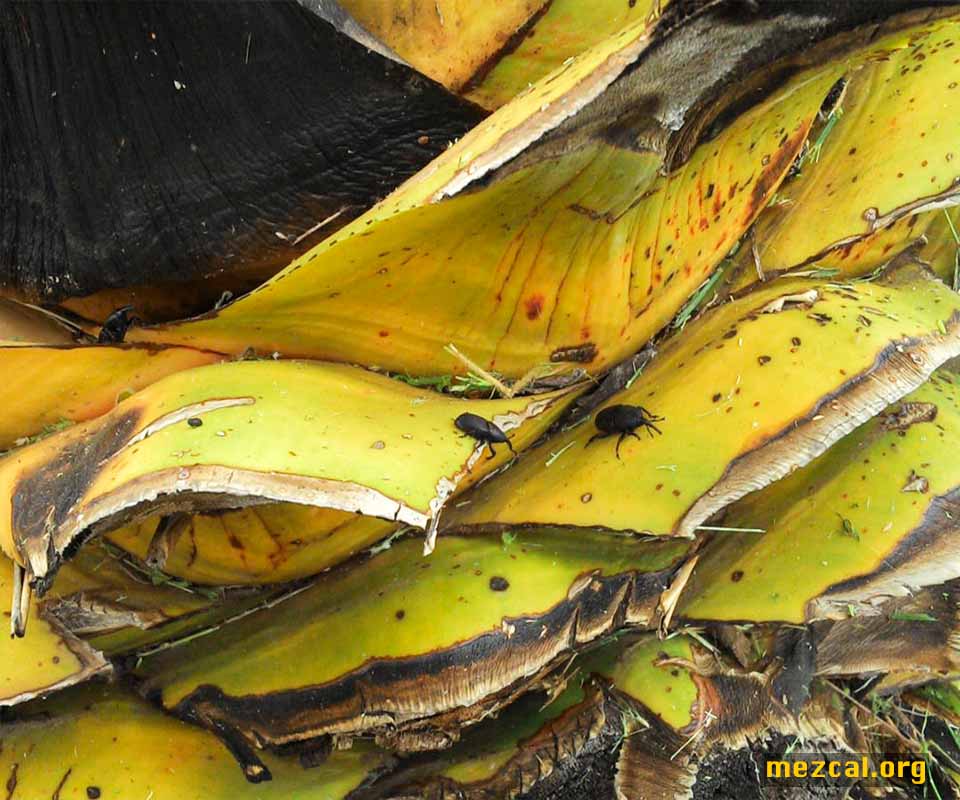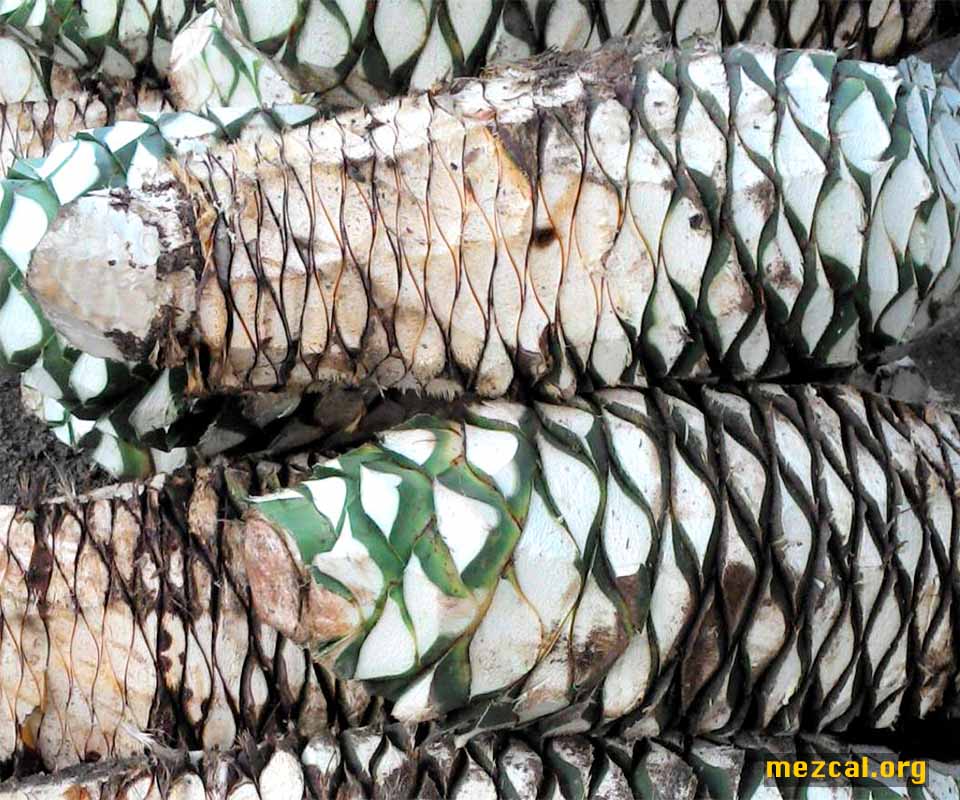In artisanal mezcal production, the must resulting from the grinding of the cooked maguey is a rich and complex mixture that includes both sweet juice and bagasse, the agave fiber. This combination is fundamental in fermentation, a critical step in the production of mezcal. The Norma Oficial Mexicana that regulates mezcal production explicitly permits fermentation to include maguey fiber. This permission is not trivial; the presence of bagasse during fermentation can significantly influence the aromatic and taste profile of the final mezcal, contributing earthy notes and a complexity that would be less pronounced if only the juice were used.
The inclusion of bagasse in fermentation is an example of how traditional practices intertwine with regulation to preserve the authenticity of mezcal. By allowing the fiber to participate in this process, a link to ancestral techniques is maintained, ensuring that the spirit of mezcal reflects its cultural heritage. In addition, this practice underscores the importance of the integrity of the production process, from the selection of the maguey to distillation, ensuring that each bottle of artisanal mezcal is a genuine expression of its origin.












Comments